Production activities at Nhu Xuan Wood Processing Factory.
In order to proactively source raw materials for production and increase the value of forestry production for people to develop the forest economy in the direction of improving productivity and efficiency, gradually linking with the processing industry, the district has identified it as the main direction to implement the policy of restructuring the forestry sector.
By 2025, the whole district has planted more than 23,900 hectares of concentrated plantation forests, of which over 21,000 hectares are planted for production forests to provide raw wood. Along with the increase in area, the quality of planted forests has also been increasingly improved, the average growth rate of planted forests is about 22m3/ha/year, the average productivity of planted forests when exploited (after 5-7 years of investment) is about 120m3/ha. The total output of exploited planted forest wood in the province in recent years has reached an average of over 360,000m3/year.
This is a source of raw wood that not only meets the production needs of businesses in the district but also supplies other localities in and outside the province. In particular, many local forest owners have gradually changed the method of afforestation from supplying wood chips to trading large timber forests with a cycle of over 10 years to provide wood materials for export processing. Contributing to stabilizing the coverage and better protecting the ecological environment.
In recent years, the district has focused on mobilizing resources to invest in infrastructure, especially the transportation system to attract businesses to invest in forest product processing, facilitating people to exploit and transport raw wood. In the district, there are currently 8 businesses operating in forest product processing, mainly wood chipping, industrial wood, peeled wood, and wood pellets. Typical examples include: LHD Company, 3 Tot Forestry Company Limited, Thanh Thanh Dat Company Limited...
Many enterprises in the forest product processing industry have boldly invested in modern production lines, built synchronous factories in industrial parks and clusters; innovated technology, applied scientific advances in production to create high-quality products, not only serving the needs of the domestic market but also aiming for export.
Mr. Le Chi Lieu, manager of Nhu Xuan Wood Processing Factory, said: “Nhu Xuan Wood Processing Factory built a factory on an area of 2,942 hectares, regularly renewing the production line. Annual output reaches about 22,000 - 25,000 tons of acacia chips. Products are exported abroad, mainly to China and Taiwan. The factory creates jobs for acacia growers, caretakers, harvesters, transporters and buyers of acacia wood locally; the local labor force working at the factory regularly is 20 workers, with an average income of 10 - 12 million VND/month”.
The district's goal in the coming time is to develop and rationally use forest resources and forestry land to create high value-added products, preserve biodiversity, protect the ecological environment; ensure stable forest cover of over 70%; manage, protect and maintain the entire area of natural forests; improve productivity and quality of planted forests.
To do that, in recent times, Nhu Xuan district has promoted the development of large timber plantations, raw material forests for the paper processing industry, industrial wood, household furniture production, etc.; effectively managed and used natural forest areas. Focused on intensive investment to improve the productivity of planted forests; well implemented the State management of forestry plant varieties; increased the proportion of new forestry plant varieties (tissue cultured acacia) from 30 - 50% by 2025. The district encourages economic linkages and investment in the wood processing industry; expanded the cultivation area of non-timber forest products, medicinal plants under the forest canopy with strengths such as: Amomum, moneywort, Codonopsis, Morinda officinalis, Panax notoginseng; many handicraft production models such as rattan, bamboo weaving, etc. have been formed to create stable income, gradually contributing to improving the lives of forest workers.
Vice Chairman of the People's Committee of Nhu Xuan District, Nguyen Huu Tuat, said: "In order for the forest product processing industry to develop sustainably and modernly, and continue to be a key economic sector, the district will support, encourage and create conditions for enterprises to participate in joint ventures and partnerships with households in investing in planting production forests, especially planting large timber forests associated with granting FSC sustainable forest management certificates, to form a value chain of forestry products, increasing competitiveness in the market. Actively and proactively participate in conferences to promote and call for investment from individuals and enterprises in the production and processing of forest products in the district. In forest product processing, the district recommends that establishments prioritize the selection of new, advanced, and environmentally friendly technologies; limit and gradually eliminate outdated and old technologies that affect product quality; pay special attention to labor safety, fire prevention and environmental protection. In addition, effectively promote the value of the forest environment through payment policies forest environmental services, reducing greenhouse gas emissions; continue to promote the socialization of forestry, mobilize the widespread and active participation of economic sectors to invest in forestry production, thereby contributing to socio-economic development, hunger eradication, poverty reduction, improving people's living standards, contributing to maintaining security and national defense".
Article and photos: Anh Tuan
Source: https://baothanhhoa.vn/phat-trien-ben-vung-nganh-che-bien-lam-san-246434.htm


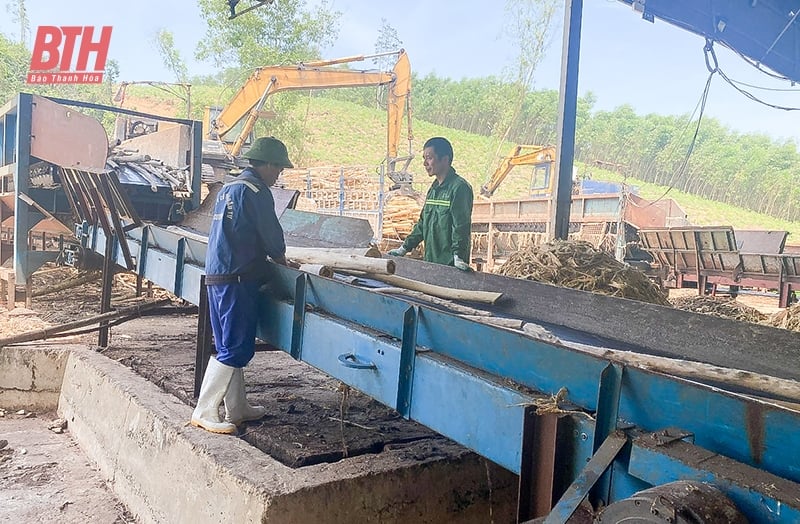
![[Photo] Ready for the top competitions of Vietnamese table tennis](https://vphoto.vietnam.vn/thumb/1200x675/vietnam/resource/IMAGE/2025/5/18/9c547c497c5a4ade8f98c8e7d44f5a41)



![[Photo] Party and State leaders attend the special art program "You are Ho Chi Minh"](https://vphoto.vietnam.vn/thumb/1200x675/vietnam/resource/IMAGE/2025/5/18/6895913f94fd4c51aa4564ab14c3f250)
![[Photo] Many young people patiently lined up under the hot sun to receive a special supplement from Nhan Dan Newspaper.](https://vphoto.vietnam.vn/thumb/1200x675/vietnam/resource/IMAGE/2025/5/18/6f19d322f9364f0ebb6fbfe9377842d3)


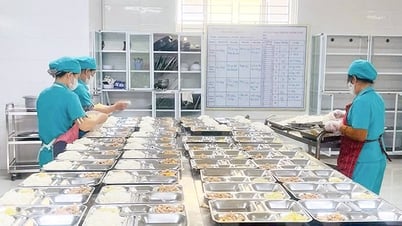

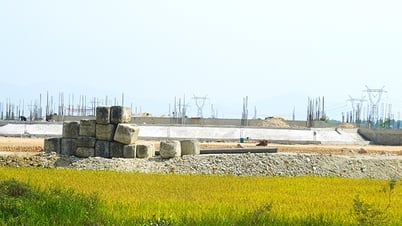
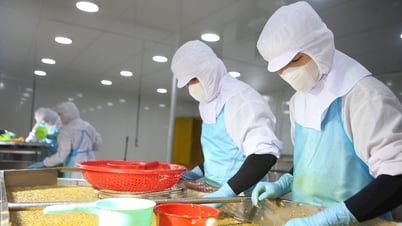

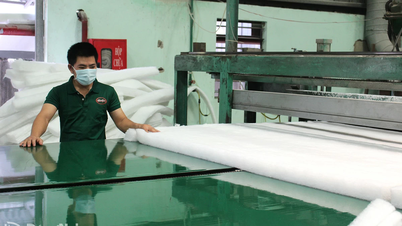

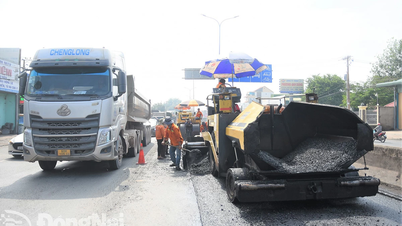





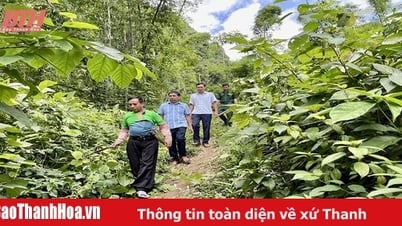
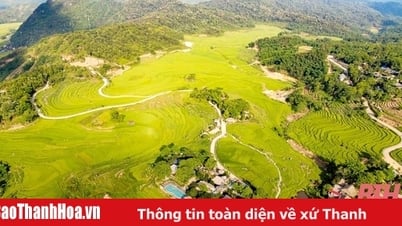

































































Comment (0)